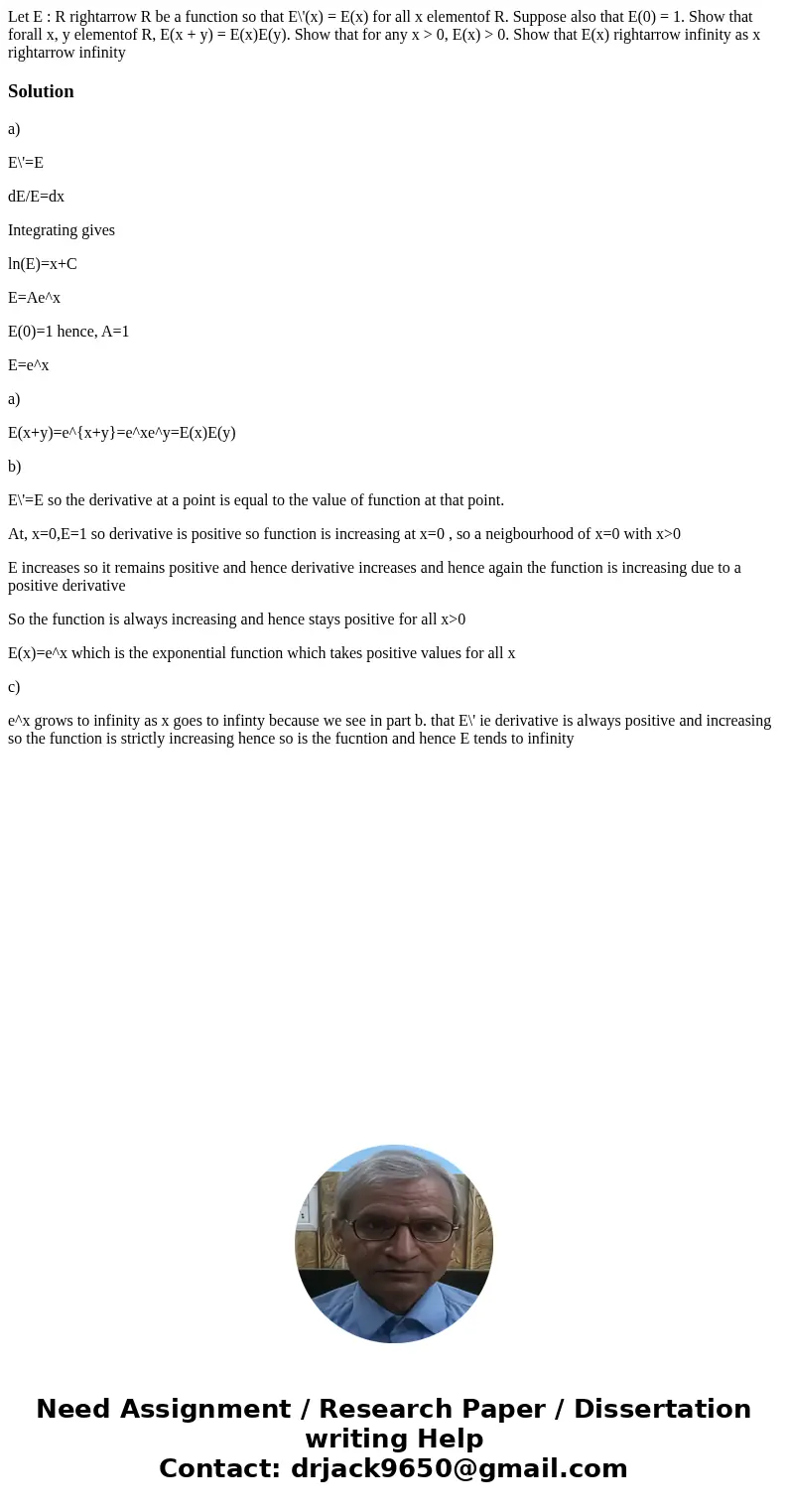Let E R rightarrow R be a function so that Ex Ex for all x
Solution
a)
E\'=E
dE/E=dx
Integrating gives
ln(E)=x+C
E=Ae^x
E(0)=1 hence, A=1
E=e^x
a)
E(x+y)=e^{x+y}=e^xe^y=E(x)E(y)
b)
E\'=E so the derivative at a point is equal to the value of function at that point.
At, x=0,E=1 so derivative is positive so function is increasing at x=0 , so a neigbourhood of x=0 with x>0
E increases so it remains positive and hence derivative increases and hence again the function is increasing due to a positive derivative
So the function is always increasing and hence stays positive for all x>0
E(x)=e^x which is the exponential function which takes positive values for all x
c)
e^x grows to infinity as x goes to infinty because we see in part b. that E\' ie derivative is always positive and increasing so the function is strictly increasing hence so is the fucntion and hence E tends to infinity

 Homework Sourse
Homework Sourse